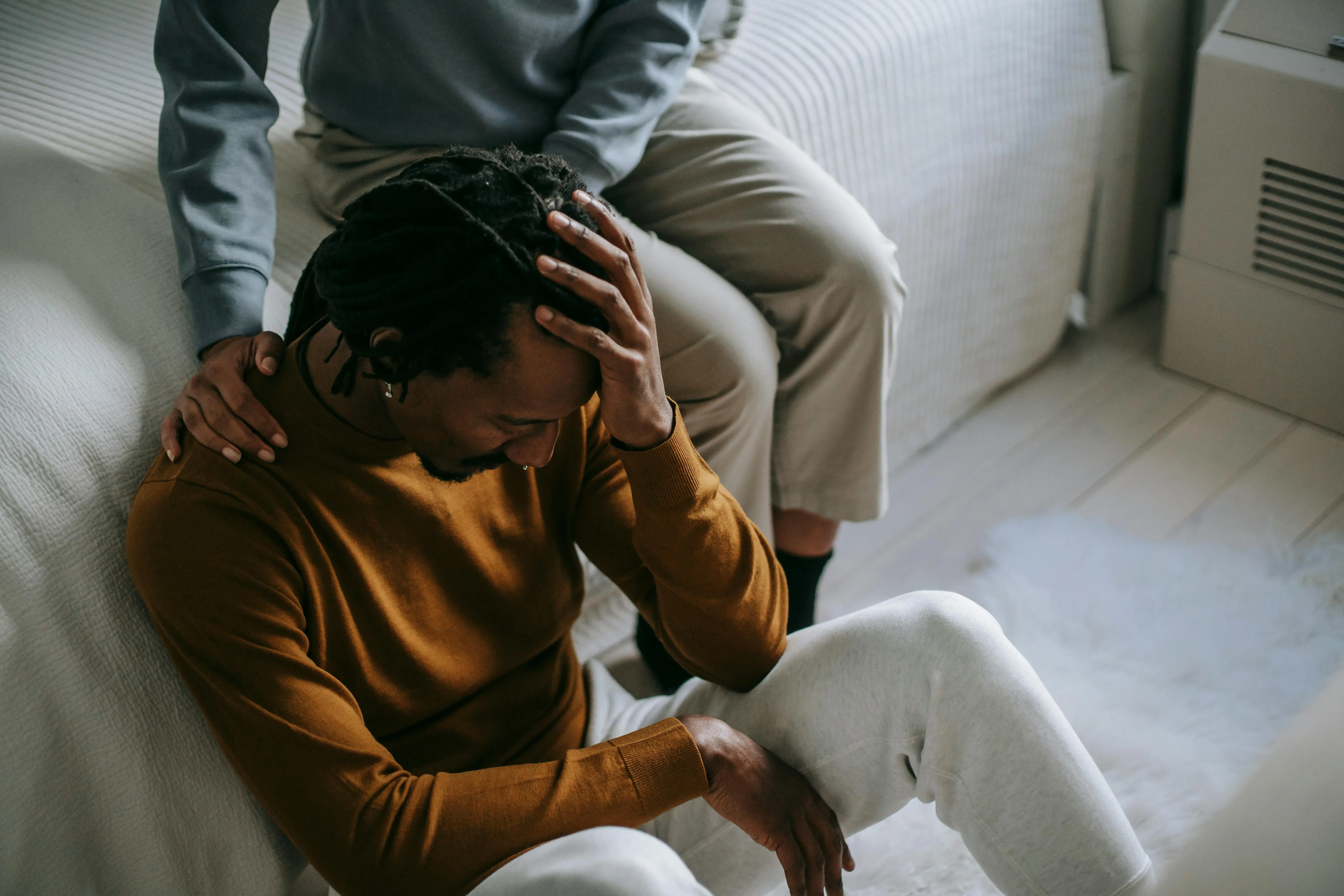Why does anxiety cause chest pain?
July 16, 2025

Anxiety is a mental health condition that can make people feel excessively worried or fearful in their everyday life, which can be debilitating and exhausting.
The symptoms of anxiety can also manifest as physical feelings. One of the most common physical sensations experienced as part of anxiety is chest pain, particularly for those who experience panic attacks. We often associate chest pain with serious physical illnesses such as heart conditions and asthma attacks, so it can be common to feel concerned about the pain.
With anxiety, there exists a vicious cycle in which the physical manifestations such as chest pain may lead to further anxious thoughts due to the associations of chest pain with illness, and these anxious thoughts may perpetuate the physical symptoms. Understandably, this can be frustrating and concerning.
This post will explore why anxiety causes chest pain.
What is chest pain?
Chest pain is an uncomfortable sensation felt in the area where the heart and lungs are in the body. It might feel like an ache, a sharp stabbing or burning sensation, or as if something is weighing down the chest. Sometimes, experiencing chest pain may make it feel as if it’s difficult to breathe.
Why does anxiety cause chest pain?
When a person feels worried or fearful, as is common in anxiety, it can activate the body’s stress response. This response leads to a number of physiological changes, such as an increase in heart rate and breathing rate, sweating, and muscle tension. This is because the body is preparing to face a threat, which in the case of anxiety, is the source of the anxious thoughts, such as a stressful future situation you’ve been thinking about.
The stress response makes the heart beat faster and harder to pump blood more efficiently around the body, so your muscles and organs have an adequate supply of oxygen to function well in the threatening situation. This may lead to the brain interpreting a painful sensation in the chest, which can also be associated with POTS and anxiety.
How can I manage chest pain caused by anxiety?
Getting the core symptoms of anxiety, such as excessive worrying, under control is the first step to managing chest pain linked to anxiety.
Some of the common treatments for anxiety include psychotherapy and anti-depressant medications.
If you’re experiencing chest pain, it’s always a good idea to follow it up with your doctor to make sure an underlying heart condition isn’t the problem.
Understanding if anxiety is triggering your chest pain
Sometimes it can be hard to pinpoint the exact cause behind a symptom like chest pain, because it can be associated with a number of health conditions. Keeping track of your symptoms using a health tracker may help you understand what makes your chest pain better or worse.
Human Health is a free mobile app that you can use to track the impact of your symptoms, such as anxiety and chest pain, and shows you how they are changing over time. You can also keep on-top of any interventions you might be using to manage your symptoms, with reminder notifications sent when you’re due for your next treatment.
Click here to download Human Health.
We hope you found this article useful. If you think someone you know could benefit from learning about the link between chest pain and anxiety, please share this article with them. We’d love for our resources to reach those who need them.
Resources
- Saitta D, Hebbard G. Beyond the heart: Noncardiac chest pain. Australian Journal of General Practitioners. Vol. 51, No. 11, November 2022.
- Huffman JC, Pollack MH, Stern TA. Panic Disorder and Chest Pain: Mechanisms, Morbidity, and Management. Prim Care Companion J Clin Psychiatry. 2002 Apr;4(2):54–62.
This is a div block with a Webflow interaction that will be triggered when the heading is in the view.










.jpg)





.png)

